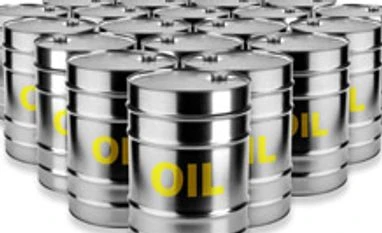Brent crude edged up on Friday, helped by weakness in the dollar, but it remained near a 13-month low below $103 a barrel as a shaky European economy fuelled concern about demand in a well-supplied oil market.
Growth in Germany and France ground to a halt in the second quarter. That disappointing data came just days after news that implied oil demand in China, the world's second-largest oil consumer, fell six per cent in July from June.
October Brent crude edged up 16 cents to $102.23 a barrel by 0702 GMT, but the September contract, which expired on Thursday, had tumbled $2 to settle at $102.01, the lowest for front-month prices since June 2013.
"The negative economic view is bearish, particularly in Europe, and that should be a major headache," said Jonathan Barratt, chief investment officer at Sydney-based wealth management firm Ayers Alliance.
"What was noticed in the last two months is that geopolitical events are not driving prices the way they should be and that tells us that the market is recognising the supply dynamic," added Barratt, pointing to rising production in the US and above-average Opec output in July.
Opec's July production was at a five-month high of more than 30 million barrels per day and more output will come from Libya as it reopens eastern oil ports.
Libya is set to resume oil exports from its largest port, Es Sider, in "a few days" after it was closed for almost a year by protests, a National Oil Corporation (NOC) official said on Thursday.
The first oil export in a year from Ras Lanuf port left the country on Tuesday.
In Europe, conciliatory comments from Russian President Vladimir Putin over the crisis in Ukraine provided some relief to investors as sanctions imposed on Russia over the Ukraine crisis has hurt trade.
Growth in Germany and France ground to a halt in the second quarter. That disappointing data came just days after news that implied oil demand in China, the world's second-largest oil consumer, fell six per cent in July from June.
October Brent crude edged up 16 cents to $102.23 a barrel by 0702 GMT, but the September contract, which expired on Thursday, had tumbled $2 to settle at $102.01, the lowest for front-month prices since June 2013.
More From This Section
US crude fell 22 cents to $95.36 a barrel.
"The negative economic view is bearish, particularly in Europe, and that should be a major headache," said Jonathan Barratt, chief investment officer at Sydney-based wealth management firm Ayers Alliance.
"What was noticed in the last two months is that geopolitical events are not driving prices the way they should be and that tells us that the market is recognising the supply dynamic," added Barratt, pointing to rising production in the US and above-average Opec output in July.
Opec's July production was at a five-month high of more than 30 million barrels per day and more output will come from Libya as it reopens eastern oil ports.
Libya is set to resume oil exports from its largest port, Es Sider, in "a few days" after it was closed for almost a year by protests, a National Oil Corporation (NOC) official said on Thursday.
The first oil export in a year from Ras Lanuf port left the country on Tuesday.
In Europe, conciliatory comments from Russian President Vladimir Putin over the crisis in Ukraine provided some relief to investors as sanctions imposed on Russia over the Ukraine crisis has hurt trade.
)